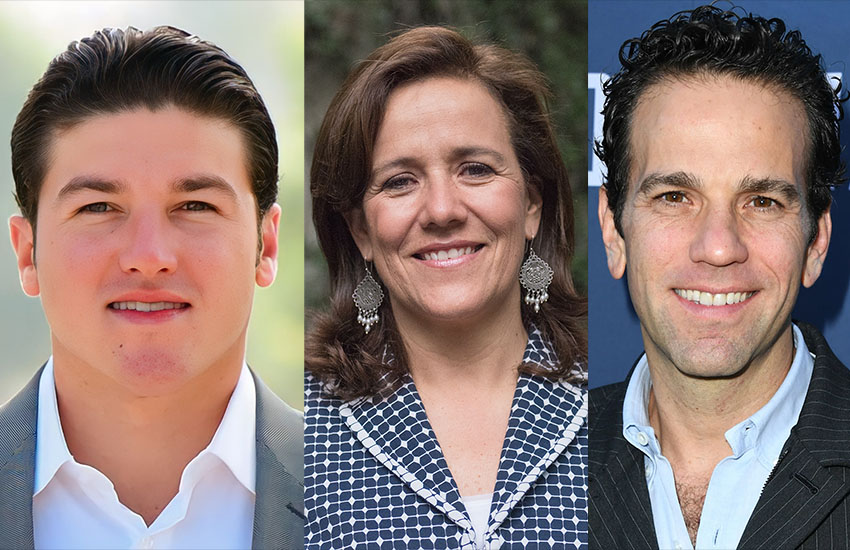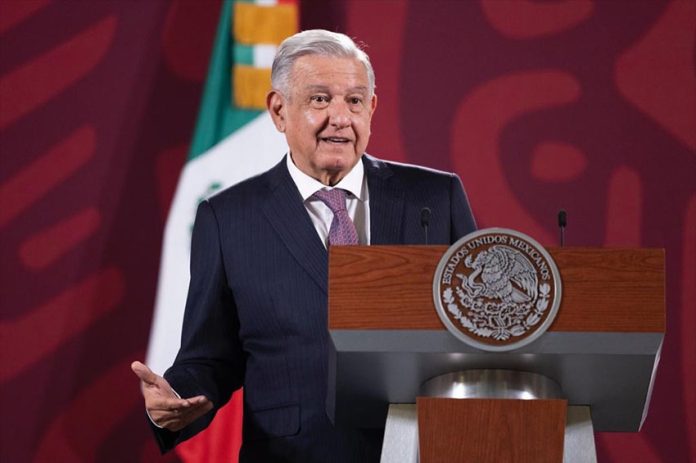With Mexico’s 2024 presidential election less than two years away, speculation is growing about who the major political parties will nominate as their candidates for the nation’s top job.
Foreign Affairs Minister Marcelo Ebard and Mexico City Mayor Claudia Sheinbaum are the leading contenders to secure the ruling Morena party’s nomination, but there is far less clarity about who will represent the main opposition parties, which could choose to field a common candidate.
In that context, President López Obrador offered his own (very) long-list of possible opposition candidates on Thursday, saying that a total of 43 people have either expressed interest in vying for the presidency or have been mentioned as potential contenders.
At his regular press conference, the president initially presented a list of 42 names, but later said that former Tamaulipas governor Francisco García Cabeza de Vaca – wanted by federal authorities on organized crime charges – was another possible “pre-candidate.”

Among the 42 names on AMLO’s alphabetized long-list were:
- Former Bank of México governor Agustín Carstens, currently serving as general manager of the Bank for International Settlements.
- Institutional Revolutionary Party national president and federal Deputy Alejandro Moreno, a former Campeche governor who is accused of corruption in his home state.
- Prominent journalist Carlos Loret de Mola, an outspoken critic of López Obrador and the federal government.
- Businessman Carlos X. González, founder of a non-governmental anti-corruption organization and a leader of the Sí por México political movement.
- Jalisco Governor Enrique Alfaro, who declared late last year that he is “more than prepared” to be a presidential candidate.
- Former federal tourism minister Enrique de la Madrid, son of ex-president Miguel de la Madrid.
- Former Mexican Employers Federation chief Gustavo de Hoyos, another Sí por México leader.
- Former federal economy minister and current federal Deputy Ildefonso Guajardo, a key negotiator of the USMCA free trade pact.
- National Electoral Institute director Lorenzo Córdova, who has repeatedly clashed with the president.
- Monterrey Mayor Luis Donaldo Colosio Riojas, son of slain 1994 presidential candidate Luis Donaldo Colosio.
- Federal Deputy Margarita Zavala, wife of former president Felipe Calderón and a 2018 presidential candidate until she dropped out of the race 1 1/2 months before polling day.
- National Action Party national president Marko Cortés, a former federal deputy.
- Yucatán Governor Mauricio Vila, a former mayor of Mérida who frequently meets with AMLO during his visits to inspect progress on the Maya Train railroad.
- Former Mexico City Mayor and current federal Senator Miguel Ángel Mancera.
- Former federal Interior Minister and current federal Senator Miguel Ángel Osorio Chong.
- Former lawmaker and 2018 presidential candidate Ricardo Anaya, a prominent antagonist of the president.
- Nuevo León Governor Samuel García, a young Citizens Movement party politician who is perhaps not as well known as his social media influencer wife.
López Obrador said that the head honchos of the conservative side of politics – “those right at the top” – will ultimately decide who represents the opposition at the 2024 presidential election.
Some of those he mentioned would appear to have little or no chance of becoming a presidential candidate, and the president asserted he didn’t know a couple of the people on his list.
His presentation of possible opposition candidates came two days after he said that a total of five people could compete for Morena’s nomination.
The president cited Ebrard, Sheinbaum and Interior Minister Adán Agusto López as aspirants to the Morena candidacy, but acknowledged that Senator Ricardo Monreal, the ruling party’s leader in the upper house, and Gerardo Fernández Noroña, a Labor Party deputy, could also enter the fray. Morena intends to give its members a say in who will be the party’s presidential candidate at the July 2024 election.
López Obrador’s speculation about who the opposition might nominate as its representative came two days after six civil society organizations joined forces to create a new opposition alliance. Representatives of the Unid@s alliance urged the National Action Party, the Institutional Revolutionary Party, the Democratic Revolution Party and the Citizens Movement party to back a common candidate at the 2024 election.
With reports from Milenio and El Universal
